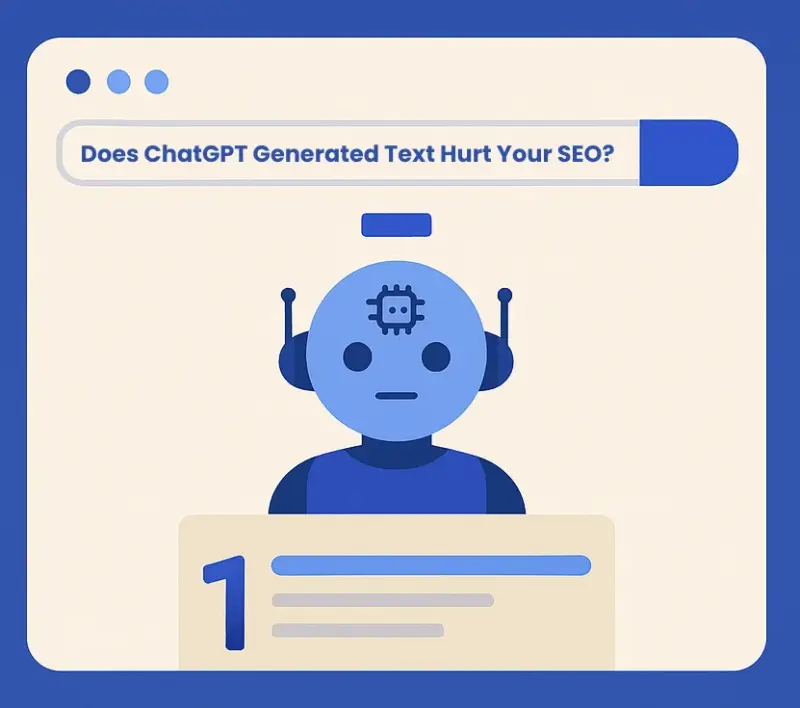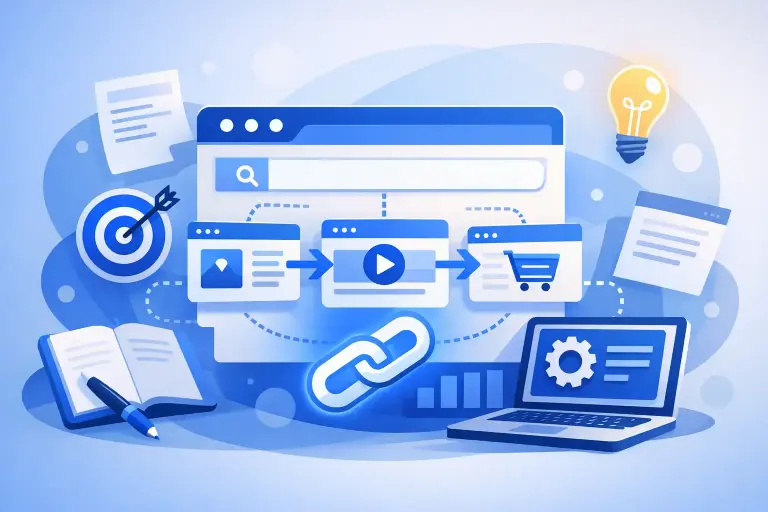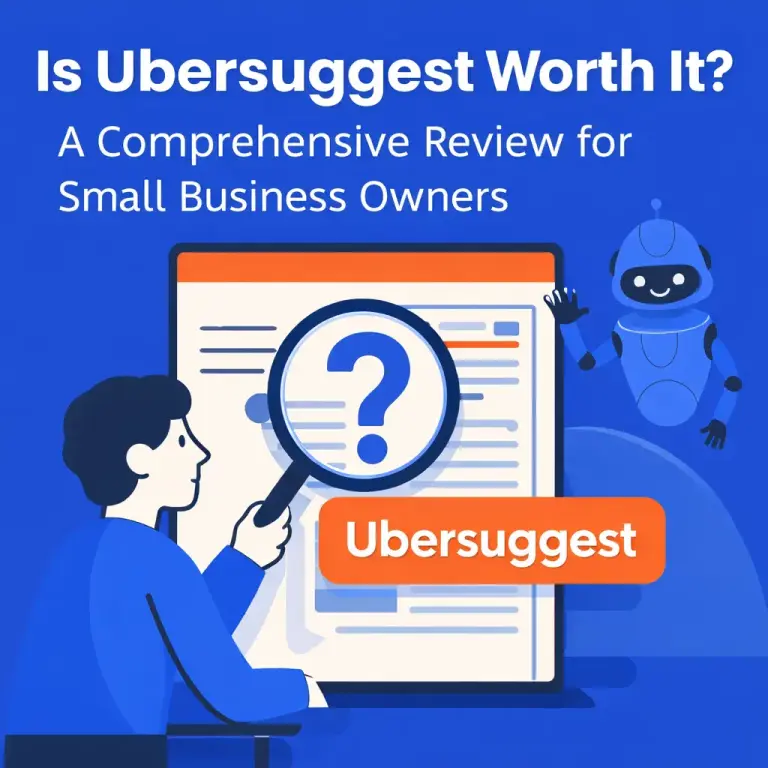AI is everywhere these days, with 88% of marketers using it regularly, and 93% say it helps them generate content faster. That raises a big question: does ChatGPT generated text hurt your SEO when you rely on it to create blog posts or web pages? The truth is, AI doesn’t damage rankings on its own, but low-quality, unchecked text sure can.
In this post, we’ll explain how Google views AI content, where ChatGPT shines and stumbles, and share real strategies to use ChatGPT sensibly—so you can produce results without risking your SEO results.
What Is AI-Generated Content and Why Does It Matter?
AI-generated content refers to text created by artificial intelligence tools, such as ChatGPT, rather than by a human writer from scratch. These tools utilize large language models (LLMs) trained on massive datasets to generate written content, graphics, images, and more. They’re fast, efficient, and widely used to scale content production. However, the ease of creation doesn’t automatically mean it’s of high quality. And when it comes to search engine rankings, quality is everything. That’s why knowing how and when to use AI content can make or break your SEO performance.
How Google Decides What Content Deserves to Rank
Google’s ranking system is designed to surface the most helpful, relevant, and trustworthy content for any given search. It doesn’t care whether the content is written by a human or generated by AI, as long as it meets its standards. These standards are built around user intent and content quality, both of which are evaluated using its E-E-A-T framework: Experience, Expertise, Authoritativeness, and Trustworthiness. Content that performs well typically checks all these boxes while being easy to read, well-structured, and backed by reliable information.
What ChatGPT Does Well (and Where It Struggles)
ChatGPT is powerful and efficient, but it’s not a silver bullet. It can produce solid drafts quickly, but that doesn’t mean they’re ready to publish. Here’s a breakdown of its strengths and limitations:
Pros of ChatGPT
When used smartly, ChatGPT can be a great content companion for:
- Rapid Content Production: It can generate large volumes of text in minutes.
- Brainstorm Ideas: It’s excellent for outlines, angles, and keyword suggestions.
- Improving Consistency: It ensures that tone and structure remain uniform across blog posts and landing pages.
Cons of ChatGPT
Of course, there are areas where ChatGPT falls short:
- Lacks Originality: AI often repeats ideas and phrases found across the web.
- Can Produce Errors: If left unchecked, it may generate outdated or inaccurate information.
- Weak on Nuance: AI doesn’t understand tone, context, or brand personality the way a human does.
So, Does ChatGPT Generated Text Hurt Your SEO?
![]()
The short answer? Only if you use it carelessly. Google doesn’t penalize AI-generated content outright, but it will downrank low-value, repetitive, or inaccurate content, regardless of who (or what) wrote it. The ChatGPT impact on SEO depends entirely on how well the content aligns with Google’s quality standards and user intent.
So, no, ChatGPT-generated text doesn’t inherently hurt your SEO. But publishing AI content without human editing, fact-checking, and optimization absolutely can.
Best Practices for Editing and Optimizing AI Text
AI tools like ChatGPT should act as your assistant, not your content lead. Here’s how to make sure what you publish meets SEO standards and still connects with real readers:
Add Original Insights
AI can’t replicate your real-world experience or personal perspective. Make your content more valuable by adding specific examples, opinions, or case studies that only you (or your business) can provide.
Use Keywords Naturally
Stuffing keywords into AI content makes it obvious—and unreadable. Instead, guide ChatGPT with your keyword list, then refine the output so that keywords flow naturally within the text.
Optimize Headings and Structure
ChatGPT often generates lengthy blocks of text. Break it up with relevant headings, bullet points, and short paragraphs. This helps both users and search engines better understand your page.
Edit for Tone and Flow
AI can sometimes sound robotic or generic. Polish the writing so that it reflects your brand voice, whether it’s casual, professional, or educational, and ensure it reads smoothly for your audience.
How Businesses Can Use AI Tools Responsibly
Publishing ChatGPT content without oversight is a quick way to lose trust. Here’s how to use AI ethically and effectively in your workflow:
Fact-Check Important Details
ChatGPT sometimes invents statistics or pulls outdated information. Always double-check facts, especially for regulated or technical industries.
Avoid Publishing As-Is
Even great drafts from AI still need a human touch. You should always edit for accuracy, structure, and clarity before publishing.
Check for Plagiarism
Because ChatGPT pulls patterns from existing content, there’s a small risk of duplicated phrasing. Use plagiarism checkers to make sure your final text is truly unique.
Follow E-E-A-T Principles
Google rewards content that shows real-world experience, authority, and trust. Include author bios, cite sources, and demonstrate your expertise wherever possible.
How HeyTony Is Using ChatGPT for SEO Results

At HeyTony, we don’t treat AI as a shortcut—we treat it as a powerful assistant to streamline our workflow and support the strategic work we’re already doing. We use ChatGPT for SEO in many ways, such as sparking ideas, structuring drafts, and scaling content production. But an SEO specialist with a sharp editorial eye still polishes everything that goes live. Here’s more detail on some of the many ways we use ChatGPT in our work:
Writing SEO-Structured Content
We utilize ChatGPT to draft outlines, supporting paragraphs, and all other content that adheres to SEO best practices. This includes keyword placement, internal linking cues, and clear formatting for readability. From there, our team refines the copy to match your brand’s tone and maximize on-page SEO performance.
Optimizing Existing Pages
When refreshing a page, we often use ChatGPT to rewrite or expand sections for clarity, improved keyword targeting, and better flow. It helps identify content gaps and gives us a quick baseline, which we then tailor to improve UX and rankings. We ensure that all updates align with current search intent and SEO objectives.
Generating Meta Descriptions
We utilize ChatGPT to generate meta descriptions tailored to each page’s focus keyword and content. Then we fine-tune them for tone, clarity, and the 160-character limit, ensuring they’re sharp, click-worthy, and aligned with search intent.
Supporting Keyword Research
ChatGPT is a helpful brainstorming tool when exploring related search terms or content clusters. It helps surface variations, long-tail phrases, and question-based queries we may not have considered. This speeds up early-stage research, which lets us develop more effective content strategies from the get-go.
Final Thoughts on Using ChatGPT Generated Content for SEO
With all that being said, the answer to the question, “Is AI content good for SEO?” depends entirely on how you use it. AI is a tool, not a strategy. When paired with human editing, original insights, and smart SEO practices, it can absolutely support your content goals.
If you’re looking for expert help using ChatGPT responsibly in your content strategy—or just want real results from SEO in Hamilton or beyond—reach out to the team at HeyTony. Or, browse our blog for more insights and actionable tips.
Originally published . Last updated .
Categories:
Explore More



